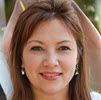When My Family Said I Was Too Old For Christmas Dinner—I Donated Their Inheritance To Their Rivals
852 View
Share this Video
- Publish Date:
- 6 May, 2025
- Category:
- Financial Planning
- Video License
- Standard License
- Imported From:
- Youtube
Tags
The day my son told me I was "too elderly" for Christmas dinner was the day I decided to rewrite my will. After forty-seven years of motherhood, three decades of professional success, and a lifetime of careful financial planning, I discovered I was nothing more than an inconvenience to the very people I had sacrificed everything for. That revelation hurt worse than the arthritis that had slowly claimed my hands after years of typing financial reports. But what my family didn't realize as they uninvited me from their table was that I controlled a twenty-million-dollar fortune—and I was about to ensure they'd never see a penny of it. Before we jump back in, tell us where you're tuning in from, and if this story touches you, make sure you're subscribed—because tomorrow, I've saved something extra special for you! My name is Josephine Merritt.
At sixty-seven, I'd built a life most would envy. After losing my husband Rowan to cancer twelve years ago, I'd transformed our modest investment portfolio into a small fortune through careful strategy and an uncanny talent for recognizing emerging market trends. My career at Westlake Financial had earned me the nickname "The Oracle" among my colleagues. While I never flaunted my wealth, I took quiet pride in knowing my son Dresden and his family would someday inherit comfort beyond anything they'd imagined. Dresden had always been ambitious—perhaps too ambitious. As a child, he'd demand two bedtime stories instead of one, insist on extra dessert, negotiate later curfews as a teenager.
I admired his determination, even when it sometimes bordered on entitlement. When he married Cordelia Voss, the daughter of pharmaceutical executives, I welcomed her into our family with open arms and an open heart, despite her tendency to appraise everything—and everyone—in terms of their market value. They settled in Thornfield Estates, an exclusive neighborhood that stretched their combined incomes to the breaking point. I watched them struggle silently for three years before offering assistance. "This is just a small gift," I'd said, transferring $300,000 into their account. "Consider it an advance on your inheritance.
No strings attached. " The relief on Dresden's face had been worth every penny. "Mom, I don't know what to say," he'd stammered, eyes welling with tears. "Use it wisely," I'd replied. "That's thanks enough. " They used some of it to renovate their home, transforming it into a showcase that soon appeared in Architectural Horizon magazine.
Cordelia launched her interior design business, Aurelia Interiors, catering to the elite of Thornfield Estates and beyond. Dresden upgraded his car to the luxury model he'd coveted. None of this bothered me—I wanted them to enjoy life while they were young enough to truly savor it. What I hadn't told them was that the "gift" represented less than two percent of my total assets. After a lifetime of prudent living and strategic investments, I'd amassed just over twenty million dollars—a fact known only to myself and my financial advisor, the unflappable Octavia Winters. "Your generosity is admirable," Octavia had remarked after I'd signed the transfer papers.
"But remember, Josephine, generosity without boundaries often invites exploitation. " I'd laughed off her concern. "They're family, Octavia. They'd never exploit me. " Those words would return to haunt me many times in the years that followed. With the financial pressure eased, Dresden and Cordelia blossomed socially.
Their circle expanded to include the Harrimans, the Coltranes, and the notorious Westbrook family, whose old money had influenced local politics for generations. I was invited to their dinner parties initially, but gradually, the invitations became less frequent. "It's just shop talk, Mom," Dresden would explain. "Boring business networking. You'd hate it. " I didn't press the issue.
Instead, I focused on my grandchildren—Emerson, Marlowe, and little Zadie. They became my world. While Dresden and Cordelia climbed social ladders, I drove carpool, attended school concerts, supervised homework, and created the kind of memories I treasured from my own childhood. I taught Emerson to play chess, helped Marlowe discover her passion for astronomy, and spent countless hours reading to Zadie, whose imagination seemed as boundless as the night sky. On weekends, I often took them to my lakeside cabin in Mistwood Cove, a secluded paradise I'd purchased with my first major investment returns. There, we'd swim in summer, ice skate in winter, and gather around bonfires to roast marshmallows and tell stories as stars wheeled overhead.
"Why don't Mom and Dad ever come here? " Marlowe asked once, gazing across the moonlit lake. "They're busy building their futures," I'd answered carefully. "Sometimes adults forget to pause and look at the stars. "














